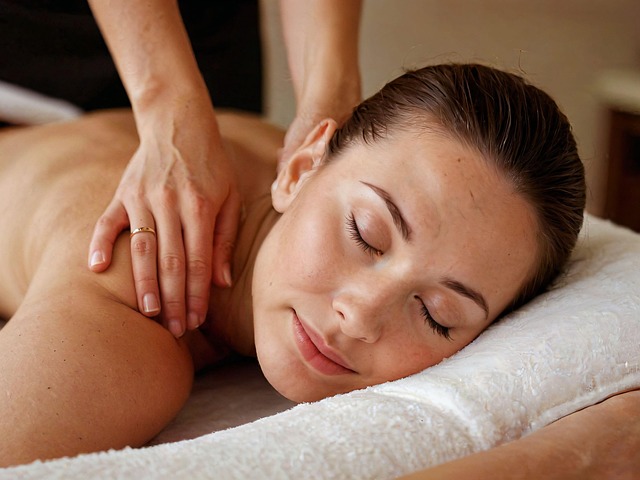Cold water immersion therapy (CWIT), including practices like ice baths and cold plunges, has gained popularity as a powerful alternative to traditional recovery methods. With numerous health benefits, such as enhanced muscle recovery, reduced inflammation, improved mental focus, and stress alleviation, CWIT is favored by athletes for performance enhancement and is increasingly embraced by non-athletes for holistic well-being. As a simple yet effective technique, cold water immersion offers an accessible way to improve physical and mental health, making it a trending wellness option with promising research backing.
Discover the surprising mental health advantages of cold water exposure through this comprehensive guide. Explore the therapeutic potential of cold water immersion therapy, from its powerful effects on mental well-being to its role in athlete recovery and performance enhancement. We delve into various techniques like cryotherapy alternatives, ice bath therapy, and more, uncovering the ancient practice’s modern applications for optimal health. Unlocking these benefits can transform your overall wellness journey.
Understanding Cold Water Immersion Therapy: Unlocking the Power of Cryotherapy
Cold water immersion therapy, also known as cryotherapy or cold plunge therapy, involves submerging oneself in cold water, typically an ice bath, for a short period. This practice has gained popularity as an alternative recovery technique among athletes and fitness enthusiasts due to its numerous health benefits. The exposure to extreme cold triggers a range of physiological responses in the body, such as vasoconstriction (narrowing of blood vessels) and decreased inflammation.
For athletes, cold water immersion can enhance performance by speeding up muscle recovery after intense workouts or competitions. It also helps reduce delayed onset muscle soreness (DOMS), improving flexibility and mobility. Beyond athletic performance, cold therapy has been linked to improved mental well-being. The cold exposure stimulates the release of endorphins, often referred to as “feel-good” hormones, which can alleviate stress, anxiety, and depression. Additionally, it promotes better sleep quality, another critical factor in maintaining optimal mental health.
Benefits of Cold Water Therapy for Mental Health and Well-being
Cold water immersion therapy has gained popularity as a powerful tool for enhancing mental well-being and promoting a sense of calm. This ancient practice, also known as cold plunge therapy or ice bath therapy, involves submerging oneself in cold water, usually below 59°F (15°C), for a short period. The benefits extend far beyond physical recovery; it is a valuable addition to mental health care and self-care routines.
One of the key advantages is its ability to reduce stress and anxiety. Cold water exposure triggers a physiological response, stimulating the release of endorphins, often referred to as ‘feel-good’ hormones, which can alleviate symptoms of depression and promote relaxation. It also increases norepinephrine levels, enhancing alertness without the jittery effects of caffeine. Many athletes use cold water immersion for recovery techniques after intense workouts, but its benefits are not limited to physical performance; it offers a natural way to calm the mind, improve focus, and boost overall mental resilience. As an alternative to cryotherapy, cold water exposure provides a simple yet effective method to support mental health goals, whether as a daily practice or a weekly ritual.
Cold Plunge Therapy for Athletes: Enhancing Performance and Recovery
Cold water immersion therapy has gained popularity among athletes as a powerful tool for enhancing performance and recovery. This practice, often referred to as cold plunge therapy or ice bath therapy, involves submerging oneself in cold water, usually below 59°F (15°C), for a short period. The benefits of cold water therapy are numerous; it helps reduce inflammation, which is crucial for athletes recovering from intense training sessions or competitions. By minimizing muscle soreness and swelling, cold water exposure can significantly speed up the recovery process.
Additionally, cold plunge therapy stimulates the release of endorphins, often referred to as ‘feel-good’ hormones, which can improve mood and reduce stress levels. This natural pain relief mechanism not only aids in faster recovery but also enhances mental resilience, a critical aspect for athletes aiming to perform at their best. As an alternative to cryotherapy or ice massage, cold water immersion offers a simple yet effective way to support athletic performance and well-being.
Exploring Alternative Cold Exposure Techniques for Optimal Health
In recent years, exploring alternative techniques for cold exposure has gained significant traction in the wellness community, offering a range of mental health advantages. Beyond traditional methods like ice bath therapy and cryotherapy, there’s a growing interest in more accessible and varied practices. Cold water immersion therapy, for instance, involves submerging oneself in cold water, which can stimulate various physiological responses beneficial for mental well-being. Athletes often incorporate cold plunges post-workout to aid recovery, but these techniques also show promise in stress reduction, improved mood, and enhanced cognitive function.
Cold plunge therapy and other cold water recovery techniques tap into the body’s natural response to cold, promoting blood flow changes that may alleviate symptoms of depression and anxiety. While ice bath therapy remains a popular option, exploring different approaches like cold water hydrotherapy or even simply taking regular cold showers can provide comparable mental health benefits. As research continues to uncover the full extent of cold water’s impact on the mind and body, these alternative exposure methods offer exciting possibilities for those seeking holistic ways to optimize their overall health.
Cold water exposure through therapies like cold water immersion and ice bath sessions offers a multitude of mental health advantages. From reducing stress and anxiety to enhancing mood and promoting better sleep, these practices have gained traction in both personal wellness routines and athletic recovery strategies. As we’ve explored various techniques such as cold plunge therapy and alternative cold exposure methods, it’s evident that incorporating cryotherapy into one’s lifestyle can significantly contribute to overall well-being. By delving into these practices, individuals can unlock a powerful tool for mental resilience and improved quality of life.
